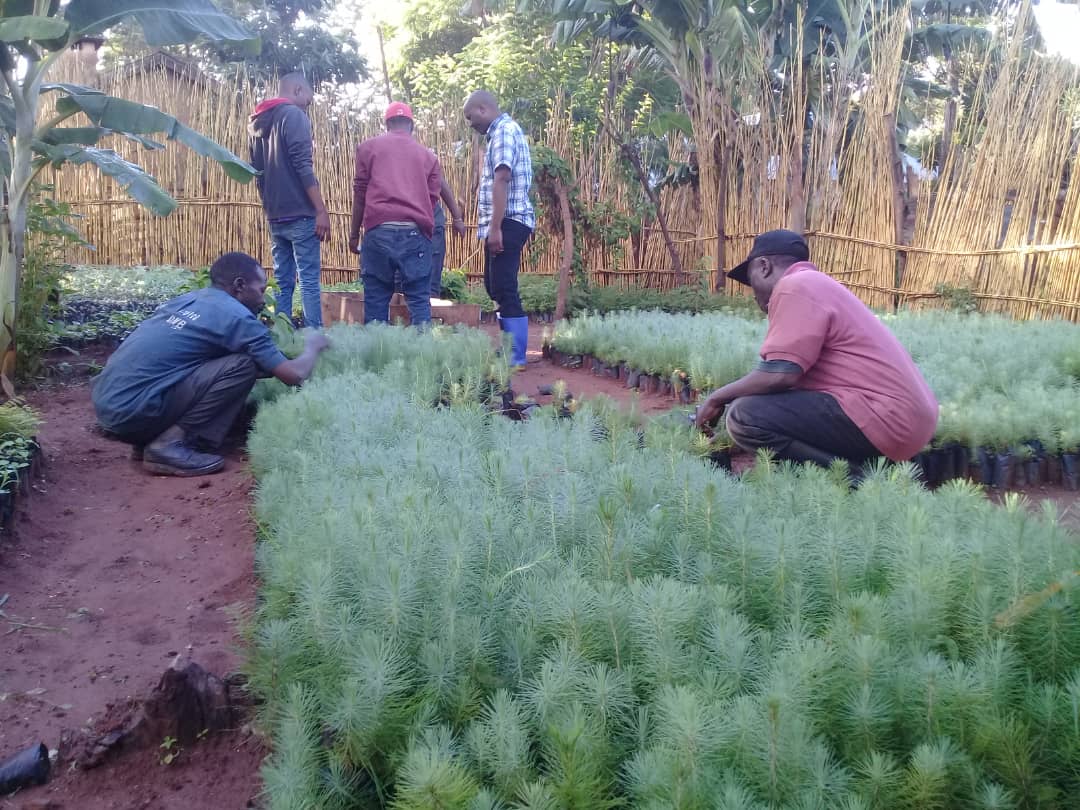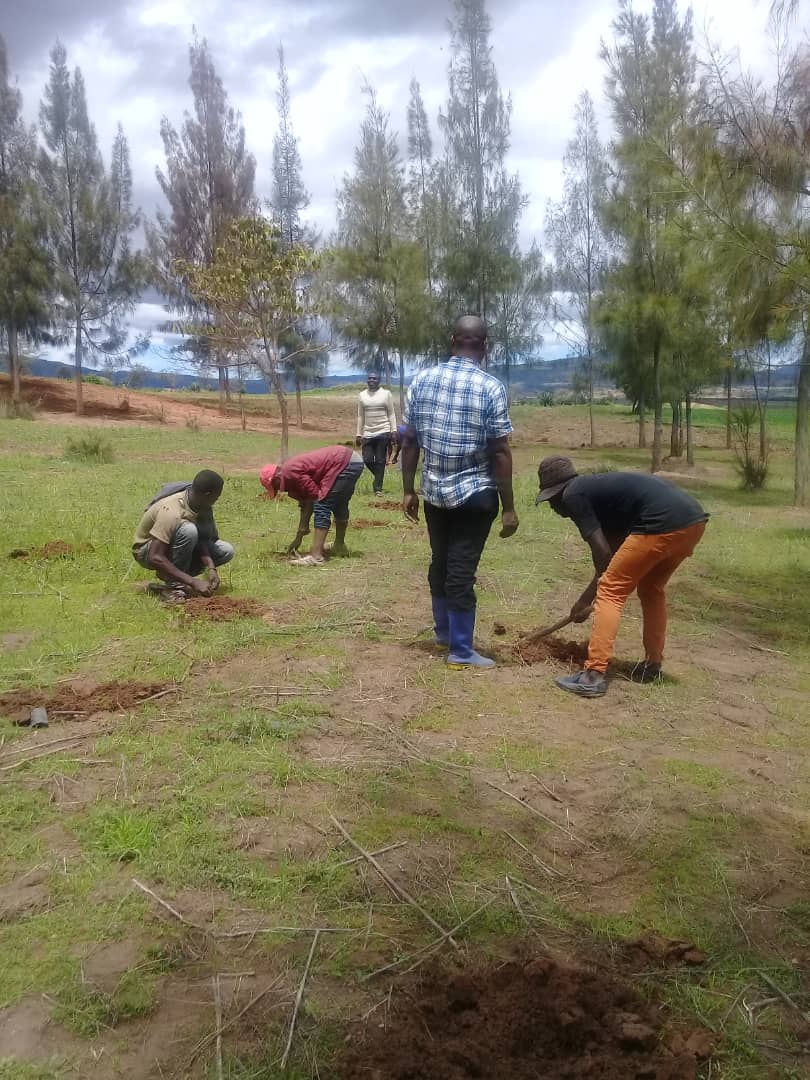Farmers embracing agroforestry in Tanzania
Organization: KAENGESA ENVIRONMENTAL CONSERVATION SOCIETY (KAESO)
Donor: LOCAL FUND
Beneficiaries: 5700
In the Rukwa region of Tanzania, farmers and pastoralists whose traditional livelihoods are threatened by the devastating effects of climate change are turning to sustainable farming methods to provide for their families.
The many different faces of climate change can be seen across all too much of the Rukwa region in the southwest of Tanzania. Deprived of sufficient rainfall, much of the land today is seriously depleted and degraded. Drought and desertification pose a huge threat to local farming communities, which are dependent on rainfed agriculture, making them particularly vulnerable. The increasingly dry conditions are also compounded by bushfires and overgrazing on the little pasture that remains – pushing many people deeper into poverty and hunger.
To help communities to adapt to desertification and deforestation, Sumbawanga-based NGO Kaengesa Environmental Conservation Society (KAESO) set about examining how local farmers could engage in sustainable farming practices. In cooperation with local government authorities, farmers organizations, villages environmental committees and other environmental stakeholders, KAESO’s technical team developed baseline surveys, conducted participatory risk assessments, and formulated community action plans. This led to the organization – which has a bottom-up approach, and a goal to strengthen the public’s role in promoting sustainable development and a clean environment – developing its agroforestry program.
The different strands of the program range from building awareness about agroforestry and mitigating the effects of climate change, to broader issues such as improved health, in line with KAESO’s wider aims.
The training that it delivers is extensive, including providing trainings to villages’ environmental and natural resources committees on forest and environmental policies, to local farmers on agroforestry and eco-friendly agriculture methods, and to women and youth groups on how to make and distribute improved cooking stoves in their local areas, which in turn helps to improve individual incomes. KAESO has also helped to establish tree nurseries and distribution to schools and individuals, and planted over 157,000 trees in the region, in addition to helping to link farmers with markets for their products.

Photo Credit: KAESO
Thanks to the agroforestry initiative and training, Ndambwinda, a local farmer, has become self-sufficient again.
“I can easily earn 3,500,000TZS to 10,000,000 TZS each year from agriculture and forestry products such as fruits and woods,” says Ndambwinda, which equates to around 1,500 to 4,250 US dollars. “This has not only secured my livelihood, but also helped me regain my dignity, honor and social status.”
Agroforestry has spread fast in the region. Its success in Kaengesa-Sumbawanga prompted farmers in neighbouring wards and districts to adopt agroforestry practices, and across Rukwa the number of farmers practicing these techniques has grown from only 67 in 2015 to nearly 35,000 in 2022.

Photo Credit: KAESO
An important dimension to KAESO’s work is the empowerment of women. 75 percent of the members of the 47 farmers groups established by the organization in Sumbawanga are women. Moreover, while separate sessions are conducted for men, women, young farmers, indigenous communities and minorities, it is women that are in the driving seat.

Photo Credit: KAESO
Despite the tree planting efforts of government and non-governmental organizations, deforestation continues to diminish forest reserves in Sumbawanga district, with the demand for fuel wood from households, businesses and schools leading to over exploitation of forest resources. For this reason, the increased use of improved cooking stoves, which burn firewood, charcoal and agricultural residues, instead of tree stone stoves, can have a significant positive impact on the local environment.
As part of its work, in concert with local government, KAESO has also taken a range of measures that have been enforced by the village governments to protect forest resources. These include the enforcement of local by-laws, conducting training on forest conservation, and holding village environmental committee (VEC), which focus on environmental protection and forest conservation. Furthermore, local communities have adopted new methods of forest conservation such distributing tree seeds to every household to increase the number of trees within specific localities and introducing tree farms that grow fast-growing varieties of tree to solve the problem of dependency on the forest for fuel wood.

Photo Credit: KAESO